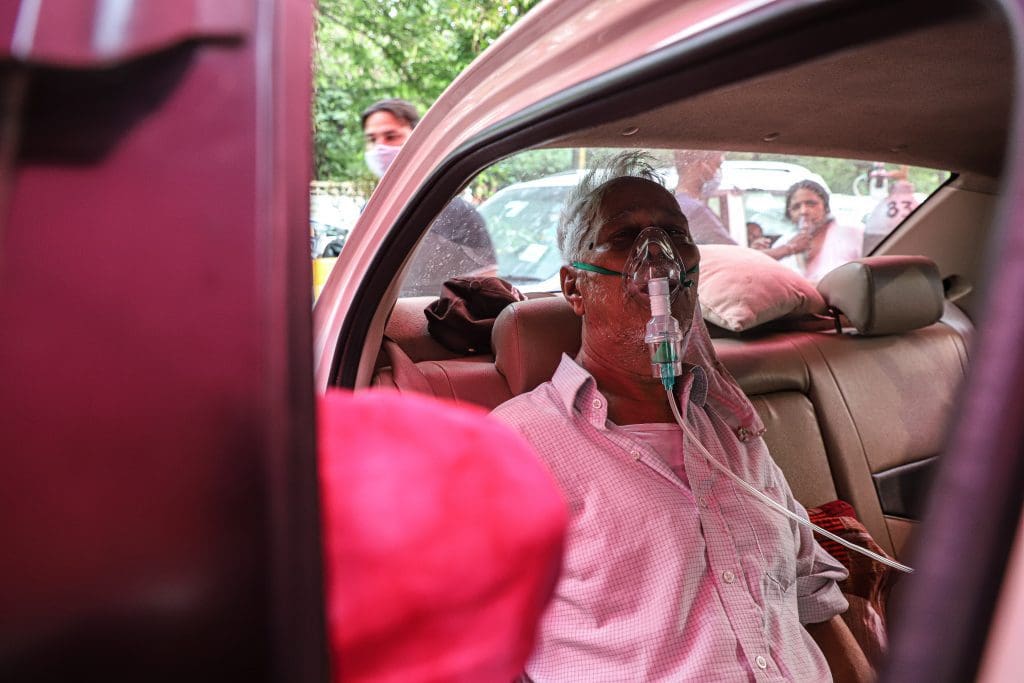
As Indian institutions became helpless in the second wave of COVID-19 which burdened and broke the healthcare infrastructure, Thousands of patients turned to social media for help access oxygen, bed and medicines. The verified leads on the internet for COVID-19 resources became the ticket to save lives.
Indian Civil Liberties Union (ICLU), a network of lawyers, advocates, paralegals and students across the country that are dedicated to defending civil rights and liberties, stepped in, sparing no time, to help victims of the collapsed healthcare system find their emergency needs.
“I could see the tragedy unfolding in front of me and seeing the helpless pushed me beyond my professional commitment,” says Adv Anas Tanwir, co-founder of ICLU. “I did not plan this, I responded to the people’s requests on my own not realizing that my team of ICLU slowly came all together without me asking them to do that.”
The second wave of coronavirus began in February but infection numbers increased in April ending the month by setting new global records of daily cases every other day. India entered May by reporting a single-day spike of more than 400,000 cases.
While the country faced shortages of hospital beds, oxygen, medicines and vaccines, Tanwir started to amplify the information of availability of hospital beds, oxygen and medicines. Soon, Tanvir and his team started a telegram channel that has over 200 volunteers providing the smallest leads to its subscribers. The channel has currently six thousand subscribers.
The Covid-19 Initiative
Speaking to Maktoob, Tanwir explained that the team devised a uniform and systematic method of data collection, which enabled the volunteers to seek out accurate information. Two verticals are involved in this task, the lead search team and the social media team. The ICLU volunteers of the lead search team collect all the available information from cities and small towns concerning ICU beds, vaccines and medicines while the social media team searches the leads on online platforms.
“Out of every 100 calls that we made to get the details, 90 or 95 are fraudulent, misleading or exhausted. It’s really saddening because we can’t make the resources, we can only provide the information and the demand is so high, the moment you put out the details of those five calls on the channel, within half an hour they are exhausted.”
The obtained critical details are provided to the coordinators of different divisions of work in the group. The leads are then verified by the volunteer and the final information is then posted on the ICLU channel along with the name of the volunteer, date stamp and time stamp.
These details were critical to saving the lives of people. The volunteers worked ceaselessly but it’s not easy to keep up the morale of your team when they themselves are being affected by the horrors of this pandemic.
Adv Anas Tanwir, Co founder of ICLU
Tanwir told Maktoob that the process of filtering out the wrong calls came with a great deal of responsibility, any mistake could cost the person his life. As the second wave has moved to rural India, ICLU volunteers keep the momentum with many days left to see a steady decline in COVID-19
‘Baffling, Distressing Times’
“The second wave of COVID-19 did not come overnight, we had a year to prepare for the second wave but believing our government that we had won the fight against corona was the first mistake. The citizens always look up to their leaders so when the government became irresponsible, the people followed,” says Tanwir.
“Lack of preparedness on behalf of the government cost the lives of many people.”
ICLU is working on a very generic and an innovative solution to compensate the people who suffered losses due to negligence of the state.
Further, it has plans to carry out comprehensive documentation that will create a bridge between the rural areas and the government in order to provide the necessary equipment in the backward areas. The organization has also filed several RTIs demanding the information of medical facilities for treating COVID-19.
“Not every day you get to save the lives of people, I feel honoured that God has chosen me to do this work. I’m proud of my team members who work day and night and it’s their time and efforts that have saved many lives,” Tanwir expressed.
Organization’s Field Work
Established in 2018, ICLU was formed with a motive to defend the fundamental values, rights and freedom of citizens and others.
The organization has contributed in spreading readily available data by carrying out an extensive documentation of series of legislations. From drafting of the Anti – Lynching Bill to Right to Information Bill of 2019, ICLU attempts to seek the danger from any change that may have an effect on the rights and freedom of the country’s citizens.
ICLU team have been providing legal aid to protestors who are booked to silence disaggrement with governemnt. They worked round the clock at the protest sites, educating people about the legal outcomes of the National Register of Citizens.
A team of ICLU was sent to Assam to understand the predicament of people whose names were not present in the final NRC list. A team also visited Tughlaqabad and assisted the concerned people in filing a complaint against the attack at the Tughlaqabad protest site.
At the beginning of the Corona pandemic, ICLU successfully arranged the means of transport and food facilities for more than 45,000 stranded migrant workers who were forced to travel hundreds of miles on foot, the organisation claims. A helpline service was arranged for people who were forced to vacate their homes by their landlords due to the constraints of lockdown. The team successfully registered complaints and prevented some of the landlords to take coercive action against the tenants.



